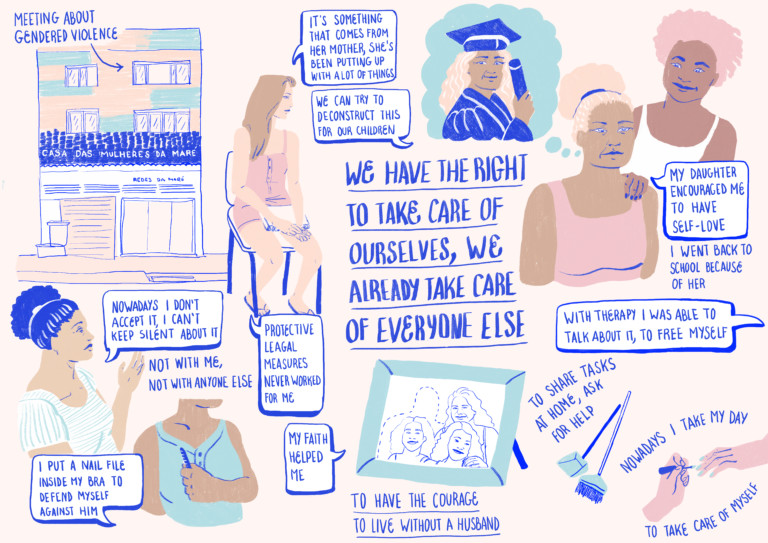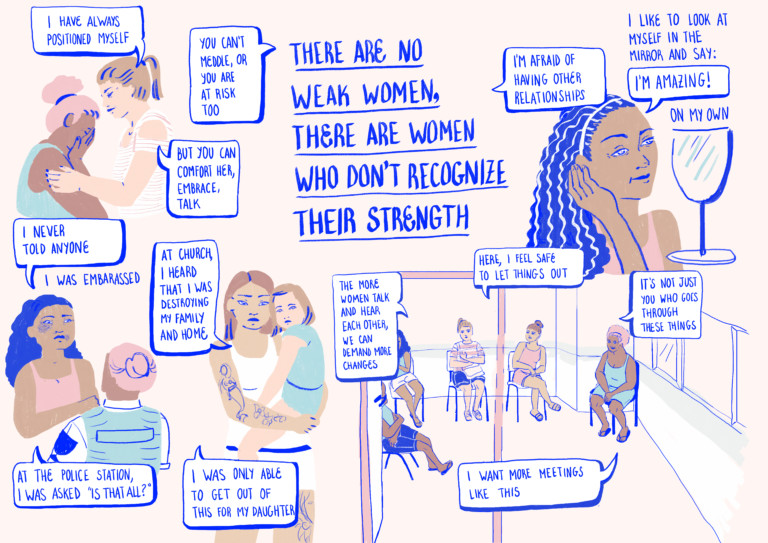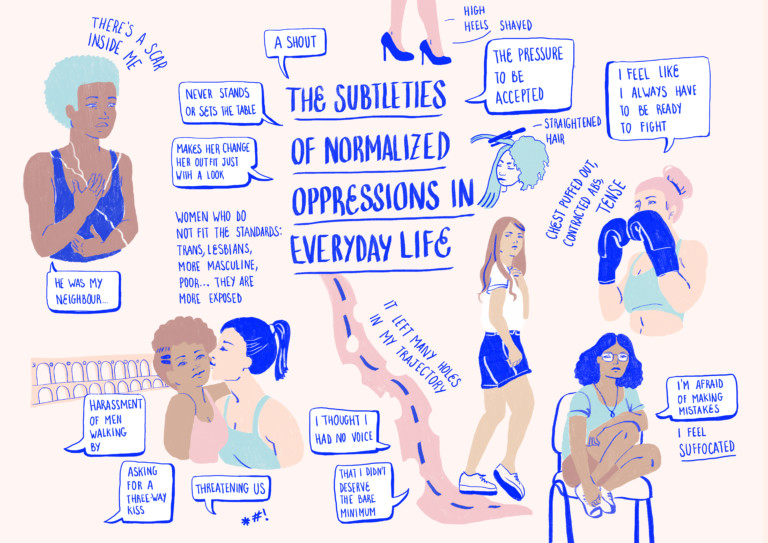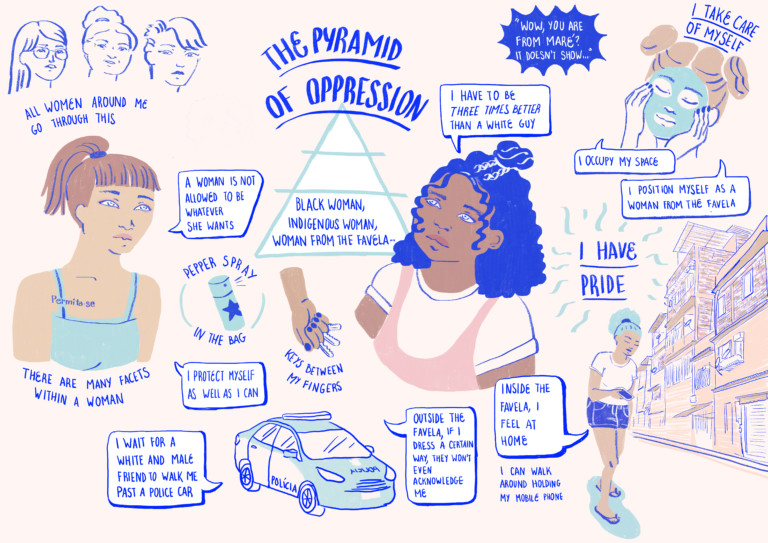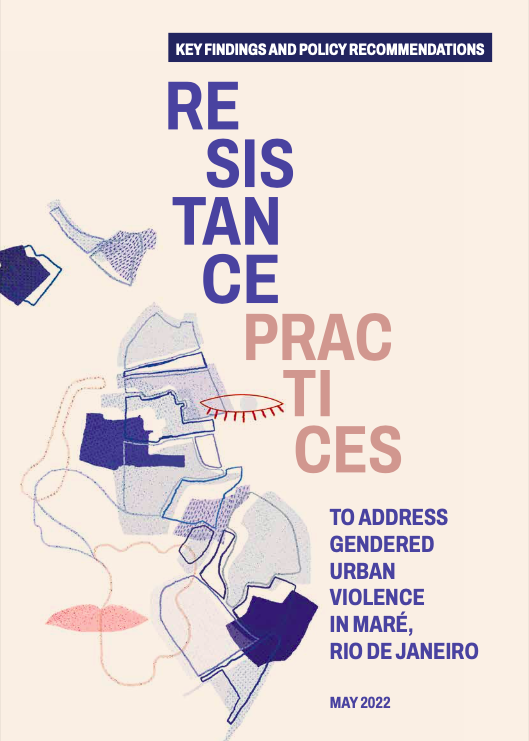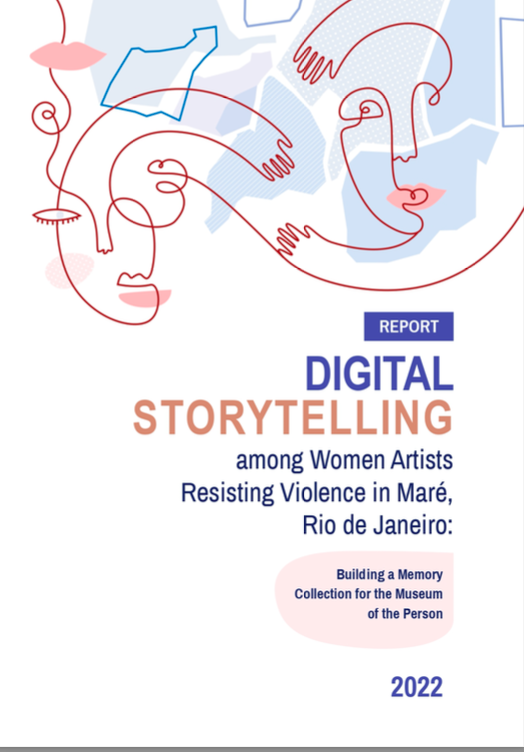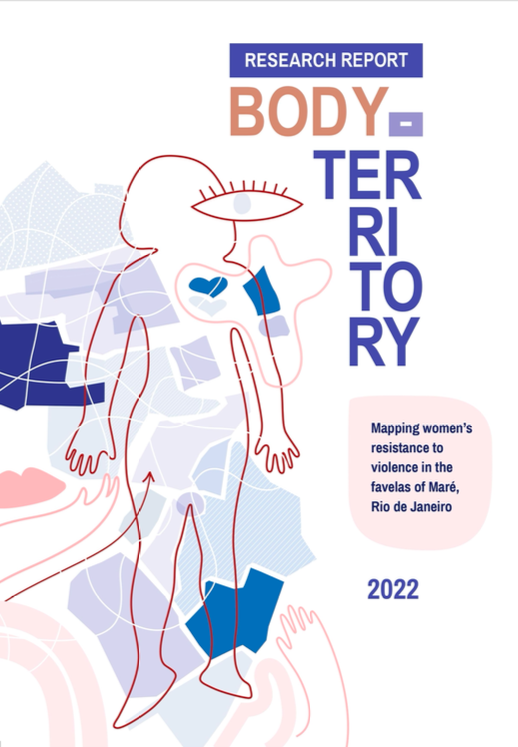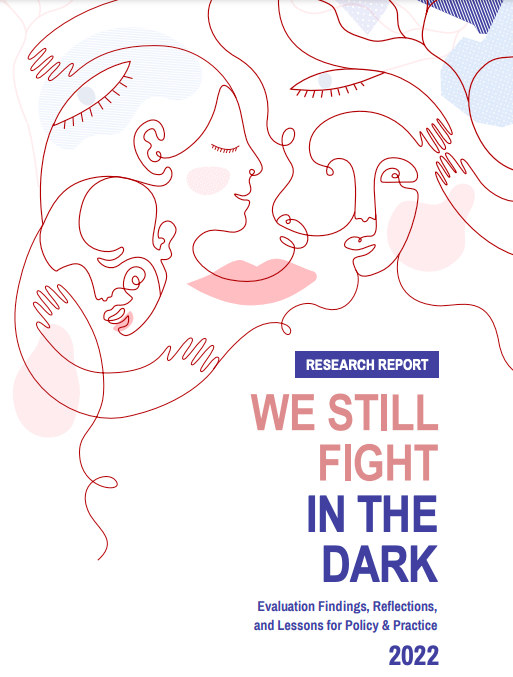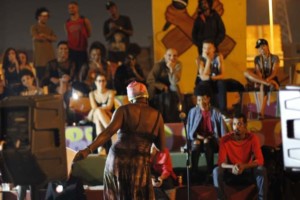Resisting Violence, Creating Dignity
Negotiating Violence Against Women and Girls (VAWG) through community history-making in Rio de Janeiro.
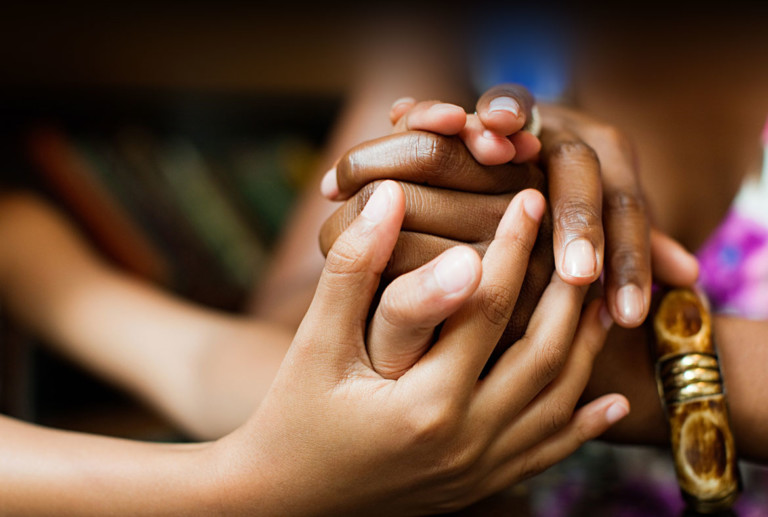
Project Overview
Resisting Violence, Creating Dignity is a pioneering new research project documenting how women in Maré, one of Rio de Janeiro’s largest favela complexes, have taken control of the narrative of gendered violence, rejecting the role of victims to become protagonists in the fight to reduce violence against women.
This study shows how women, trans women and girls of Maré have attempted to reduce and prevent violence by harnessing creative resistance practises, building dignity and documenting the community’s creative heritage.
Ten women from Maré were selected to talk about individual and collective resilience in the territory through arts and culture. The videos are now part of Museu da Pessoa digital archive.
Lenice Silva is one of the 10 women interviewed who share their stories with us:
By building knowledge about Maré as a place of resistance to violence against women and girls, lessons can be learned and passed on, strengthening prevention efforts elsewhere in Rio de Janeiro, through Brazil and around the world.
The project opened a new strand of research following a previous study led by the same team from 2016-2018, called Healthy, Secure and Gender Just Cities: Transnational Perspectives on Violence Against Women and Girls in Rio de Janeiro and London (Funded by ESRC and the Newton Fund).
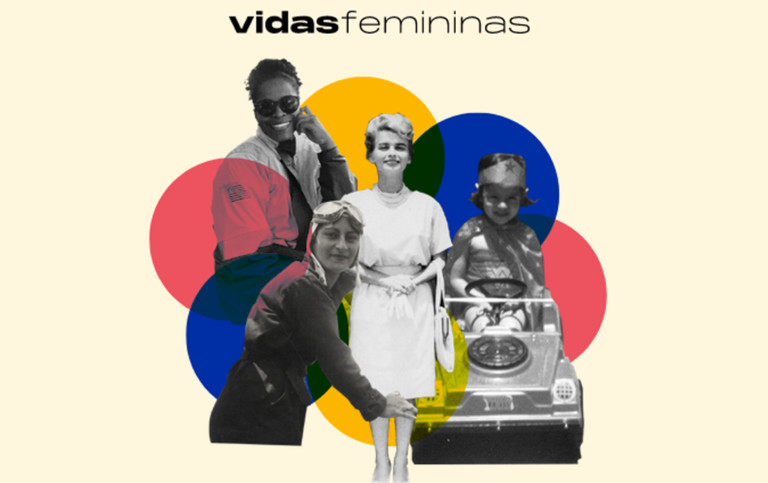
VAWG in Maré and beyond
In the Maré complex, home to more than 140,000 people, women are taking ownership of their stories. A culture of creative resistance, building dignity and self-esteem, has been established through community history-making, dancing, cooking and the provision of legal advice services.
Residents are routinely exposed to violence. They are often caught in the crossfire between heavily-armed drug factions and military police. In addition, many women experience violence at home or in social settings.
The assassination of Marielle Franco in 2018, a black activist and councillor from Maré who campaigned against gender-based violence and police impunity, drew attention to the considerable barriers Brazilian women continue to face in accessing their rights and enjoying a safe life.
In Brazil, a woman is killed every seven hours. 1,314 women were murdered last year, one of the highest femicide rates in the world. In Maré, 43% of women in a 2018 survey stated that they had experienced gender-based violence. The issue is a pressing issue everywhere but an endemic problem in the favela. Until now, much less has been said about how these women are resisting and seeking to reduce such violence.
Violence Against Women and Girls (VAWG) remains one of the most pressing problems affecting women everywhere and its elimination is central to achieving the UN’s Sustainable Development Goal 5 on gender equality, especially in cities (SDG 11).
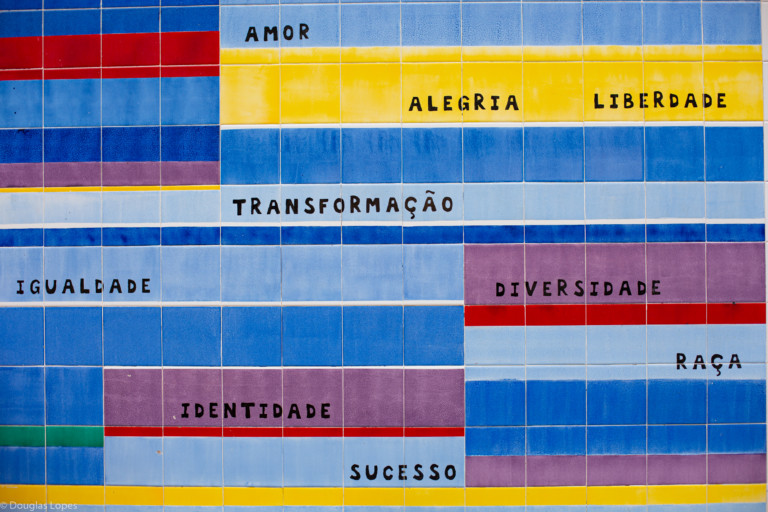
Methodology: by Women, for Women
The study combined traditional social science surveys and interviews with arts-based approaches, photography of grassroots actions and dance workshops. It has mapped the creative community histories developed by women as protagonists in resisting violence, to show how building dignity and controlling their own narratives enables them to help and protect each other.
The illustrations by Mila de Choch came out of the focus groups:
